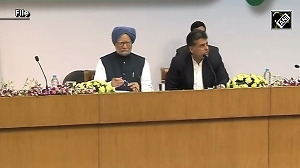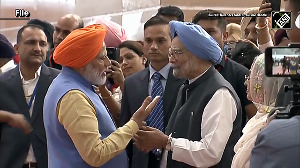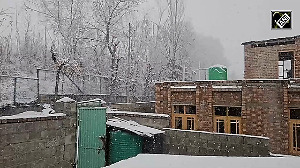India's southwest monsoon will likely arrive at least several days late but the delay should not affect the amount of rain that falls during the four-month wet season, a senior weather official said on Wednesday.
The monsoon is the economic lifeline of agriculture-dependent India and usually hits land in southern Kerala on June 1. Farmers are anxiously scanning the skies for it arrival after the worst rains in 15 years last year badly hurt agricultural output and economic growth.
"At the earliest, the onset this year could be between June 4 to 6," S R Kalsi, additional director-general of the India Meteorological Department, told Reuters.
Weather officials said earlier this month the June-September rains were expected to be close to normal as the devastating El Nino weather pattern that triggered last year's drought was nearly over.
Officials said on Wednesday the monsoon's delayed arrival might also mean the rains would reach neighbouring states like Goa and Karnataka later than usual.
But Kalsi said the delay would not affect the amount of rainfall and added, "we have noticed some encouraging signs". He said satellite images showed a buildup of clouds over the southeast Arabian Sea "which is a favourable sign".
The monsoon entered the south Andaman Sea on May 16, its normal date. But since then, it has moved erratically due to a cyclone in the Bay of Bengal.
"The delay in the onset will have nothing to do with the eventual performance of the monsoon -- that is the amount of rainfall or distribution," a Mumbai commodities analyst said.
The monsoon is crucial to India's economic performance as farm production depends heavily on the timely arrival and distribution of rains. Agriculture accounts for 25 per cent of GDP and drives domestic demand in Asia's third-largest economy.
The monsoon arrived on the southern coast on schedule last year. But July, a vital month for farmers, was dry, damaging oilseed and grain crops in western and central regions.
The monsoon's arrival should bring relief to parts of southern India now in the grip of a deadly heat wave in which temperatures have soared to 47 degrees Celsius (116.5 degrees Fahrenheit).
The scorching temperatures have killed at least 489 people in coastal Andhra Pradesh state. Extreme weather conditions regularly kill hundreds of people in India each year.







 © 2024 Rediff.com -
© 2024 Rediff.com -